- Monkey Bars
- Climbing Trees or Playground Equipment
- Animal Walks
- Balloon Volley
- Yoga Poses
- Skipping Rope
- Washing Windows, Table Tops, and Desks
- Playing Catch with an Exercise Ball or Weighted Ball
- Drawing, Writing, or Coloring on a Vertical Surface
Many children engage in sports that need strength in the upper body, such as baseball, tennis, basketball, and other similar activities. As a parent or coach, you can ensure your children safely develop their upper body strength. Strength training is good for kids' bones, their self-esteem, and overall balance. In addition, it can help kids do better in sports. However, strength training routines should never be done to get larger muscles, as this can lead to major injuries. When you work with kids to build their upper body strength, make sure you stress proper technique and have fun.
Why Upper Body Strength Is Important
The development of fine movement skills, coordination, and postural control all require stability in the shoulder muscles. This is an essential component. When you move your hands and fingers, you need to make sure that your upper body and shoulders are either stabilizing or actively contracting during the movement. To help children build the muscles essential for a wide variety of tasks, including handwriting, playing catch, reaching, picking up tiny items, and more, upper body exercises for kids and shoulder strengthening activities can be of great assistance.
How To Develop Upper Body Strength
Monkey Bars
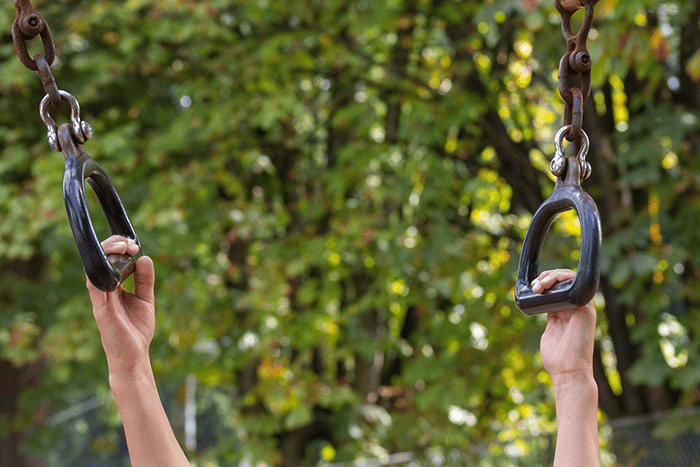
Monkey bars are a classic playground favorite that significantly boosts upper body strength. When children use monkey bars, they engage their arm, shoulder, and back muscles to swing from one bar to the next. This activity also requires coordination and visual-spatial skills, as children must judge distances and timing to successfully move along the bars. The sense of accomplishment they feel upon mastering the monkey bars boosts their confidence and encourages further physical activity.
Climbing Trees or Playground Equipment
Climbing trees or playground equipment such as ladders, ropes, and rock walls offers an adventurous way to build upper body strength. These activities demand the use of arm and shoulder muscles to pull the body upward, while also enhancing grip strength. Climbing also promotes problem-solving skills as children navigate the best routes to reach the top, encouraging both physical and cognitive development.
Animal Walks
Animal walks are playful yet effective exercises for developing upper body strength. Examples include the bear walk (crawling on hands and feet), seal walk (dragging the body forward using arms while legs stay straight), and donkey kicks (kicking legs up while balancing on hands). These activities require children to bear weight through their arms and hands, strengthening their shoulders, arms, and core muscles. Additionally, animal walks improve coordination and balance, making them a holistic exercise option.
Balloon Volley
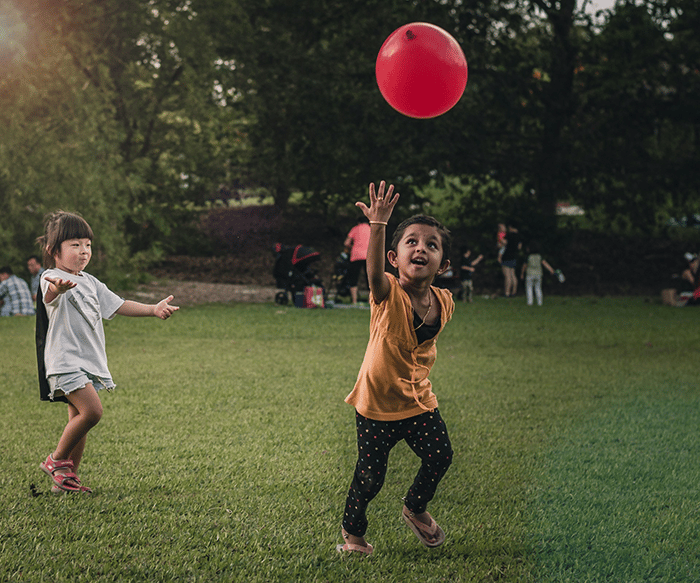
Balloon volley involves keeping a balloon in the air using only the hands, requiring children to reach up and tap the balloon continuously. This activity is excellent for building shoulder and arm strength, as children must maintain their arms above their heads for extended periods. The light resistance of the balloon also helps in developing endurance and control, making it a fun and engaging way to work out.
Yoga Poses
Yoga poses such as downward-facing dog, plank, and child’s pose are wonderful for building upper body strength in children. These poses require them to support their body weight using their arms, shoulders, and core. Yoga also promotes flexibility, balance, and mindfulness, offering a comprehensive approach to physical and mental well-being. Incorporating yoga into a child's routine can help them develop a healthy relationship with exercise from an early age.
Skipping Rope
Skipping rope is a high-energy activity that helps in strengthening the upper body, particularly the shoulders. While jumping, children must keep their shoulders steady to control the movement of the rope, leading to isometric contraction (stability) of the shoulder muscles. This activity also improves cardiovascular health, coordination, and rhythm, making it a well-rounded exercise for young children.
Washing Windows, Table Tops, and Desks
Involving children in household chores like washing windows, tabletops, and desks can be surprisingly effective for building upper body strength. The repetitive circular motions and the effort required to scrub surfaces engage the arm, shoulder, and back muscles. Children often enjoy these tasks as they feel helpful and responsible, turning a boring chore into a strength-building activity.
Playing Catch with an Exercise Ball or Weighted Ball

Playing catch with a large exercise ball or a weighted ball is another fun way to develop upper body strength. The weight of the ball requires children to use their arm and shoulder muscles to throw and catch it. This activity also enhances hand-eye coordination, reaction time, and overall physical fitness. Using different weights and sizes of balls can vary the challenge and keep the activity interesting.
Drawing, Writing, or Coloring on a Vertical Surface
Encouraging children to draw, write, or color on a vertical surface, such as wall-mounted paper, can help build upper body strength. This position requires them to raise their arms and maintain them in an elevated position for extended periods, engaging the shoulder and arm muscles. It also promotes fine motor skills and creativity, making it a beneficial and enjoyable activity.
Popular Topics
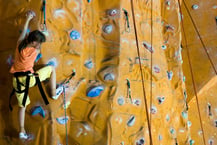
How to help your child retain strength throughout the day
Reviewed By Apurva Surve, Sports Nutritionist

What is Vitamin D deficiency? Spotting early signs of Vitamin D deficiency
Reviewed By Divya Gandhi, Dietitian
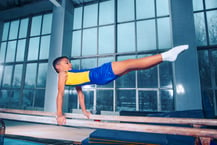
Understanding How Vitamin D Leads to Strength
Reviewed By Kejal Shah, Nutrition Expert
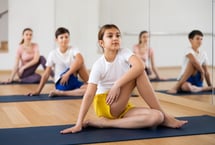
How Vitamin D plays a Role in Building Strength for Various Sports
Reviewed By Kejal Shah, Nutrition Expert
The views expressed are that of the expert alone.
The information provided in this content is for informational purposes only and should not be considered a substitute for professional medical advice, diagnosis, or treatment. Always seek the advice of your physician or another qualified healthcare provider before making any significant changes to your diet, exercise, or medication routines.











